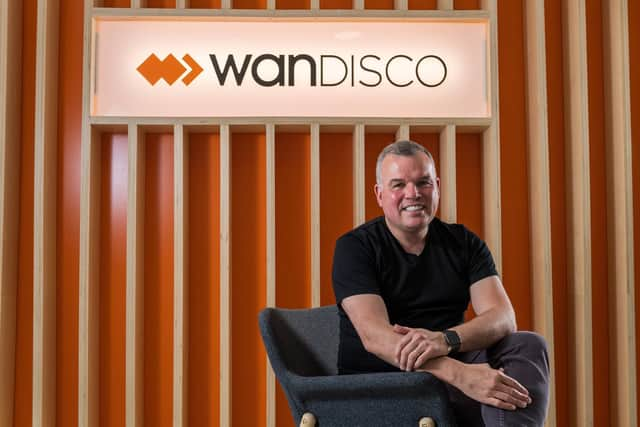Why British universities are facing their own 'Kodak moment' - David Richards
Technology has commoditised the sharing of knowledge. Two plus two equals four whether you are at Cambridge or Cumbria. Vice chancellors must snap out of their collective delusion for the nation’s sake.
At its height, Kodak controlled 90 per cent of camera film sales in the United States, employed nearly 150,000 people and enjoyed profit margins to die for. But the company’s reluctance to back its own advances in digital technology for fear of undermining its lucrative analogue business would erase its position at the top of the photographic industry and eventually see it filing for bankruptcy protection. Many of our universities could be shuttered for good unless they change their focus.
Advertisement
Hide AdAdvertisement
Hide AdToday, higher education institutions support 440,000 staff and 2.38 million students across the UK. Record numbers of young people are signing up for university. At the last count, 38 per cent of 18-year-olds were starting a full-time undergraduate course in the UK. They are gearing up with record levels of borrowings: the average debt for those who finish their courses is £45,000 and counting. Yet the labour market is showing a record level of 1.3 million job vacancies. Something is clearly going very wrong.


In my sector, we had two million vacancies in the year to May 2022. Technology is absolutely driving economic growth. The UK tech sector is attracting record investment. UK start-ups are capturing more than a third of the funding going into Europe. More unicorns are being created than ever before – 29 in the last year, taking the total to 115, more than France and Germany combined. The City has been the most active venue for initial public offerings outside the United States and Greater China. More than half of all new tech vacancies are beyond London and the South East, boosting the UK regions and the Levelling Up agenda.
Out of frustration at the low employability of graduates coming out of UK universities, we launched EyUp in Sheffield last September to teach people everything they need to know to get a job as a software developer within 16 weeks. Every one of the graduates from the first cohort has found a job. They are productive from the outset. The second cohort graduated this June, having learnt the most in-demand methods used in software development today, and we are oversubscribed for the third cohort, which begins in September.
We could see a huge gap in the market that was hindering our sector’s ability to grow. I believe half of the population has the aptitude to write code. To prove the point, we have attracted people from backgrounds including charity fundraising, the construction industry, online retail, bartending, the police force and the Royal Navy. I want to see 1,000–plus people a year go through our academy, change their lives and get rewarding, well-paid jobs in my sector. It’s called enlightened self-interest.
Advertisement
Hide AdAdvertisement
Hide AdLife at university can be great fun and undoubtedly helps people to prepare for independent life. But for how long can we justify spending huge amounts of time and money on degrees that are no longer fit for purpose? Instead of completing a mammoth research project in the name of a dissertation during their final year, students could undertake an intensive vocational course like EyUp that actually qualified them for the world of work by equipping them with relevant skills. They would gain a (qual) degree as opposed to the ubiquitous, increasingly meaningless honours (hons) degree.
Britain’s universities have what we call an innovator’s dilemma. They have a vested interest in things staying as they are. With an annual income of £39bn, supported by taxpayer-funded student loans totalling £22bn, who can blame them? But the costs for young people to attend are substantial and the outcomes are questionable, especially for employers in the fast-growing technology sector. Vice chancellors have a choice. They can carry on serving their market in the knowledge that higher education is no longer fit for purpose in the digital economy or they can adapt and embrace dynamic new models. Just look at Kodak to see how the picture could develop if they don’t
David Richards is the founder and CEO of Sheffield-based tech business WANdisco plc